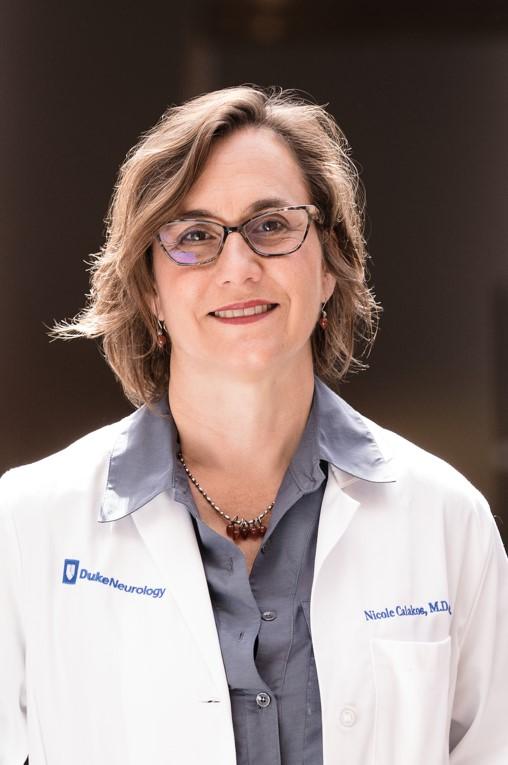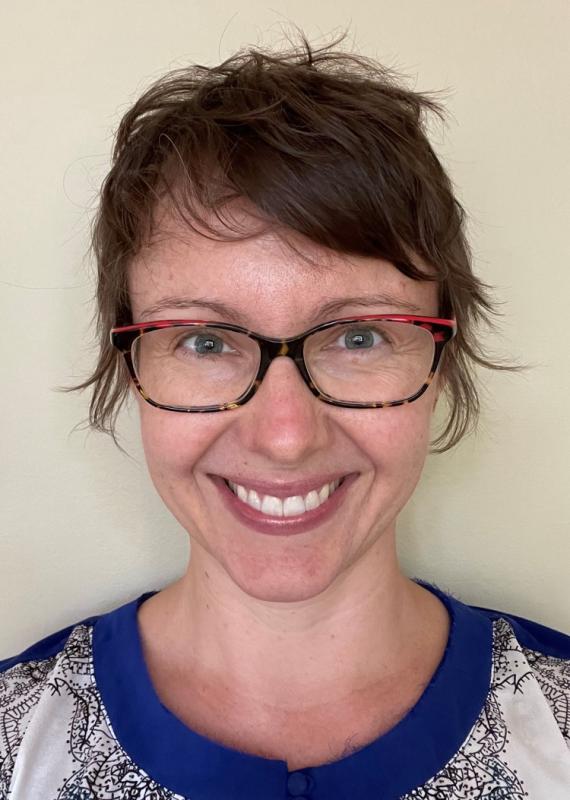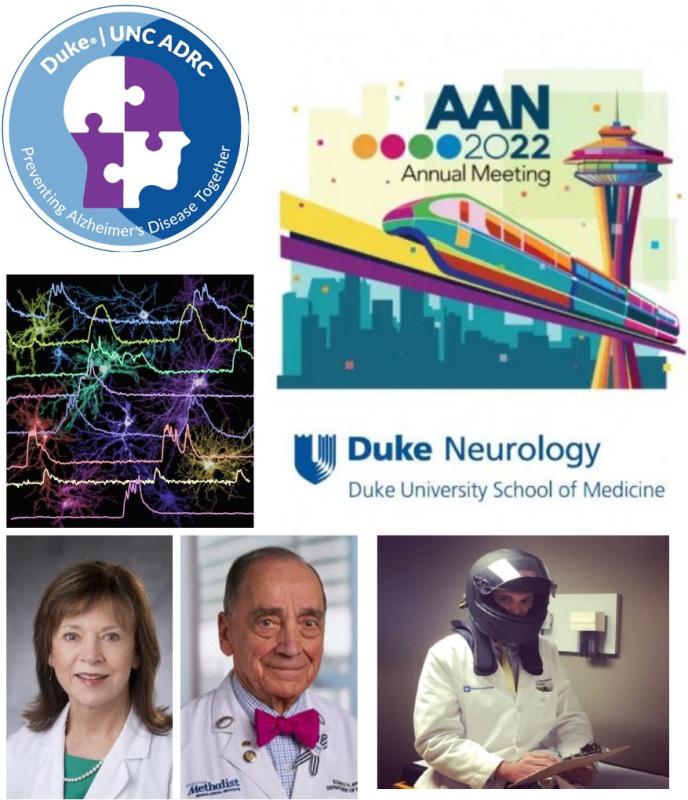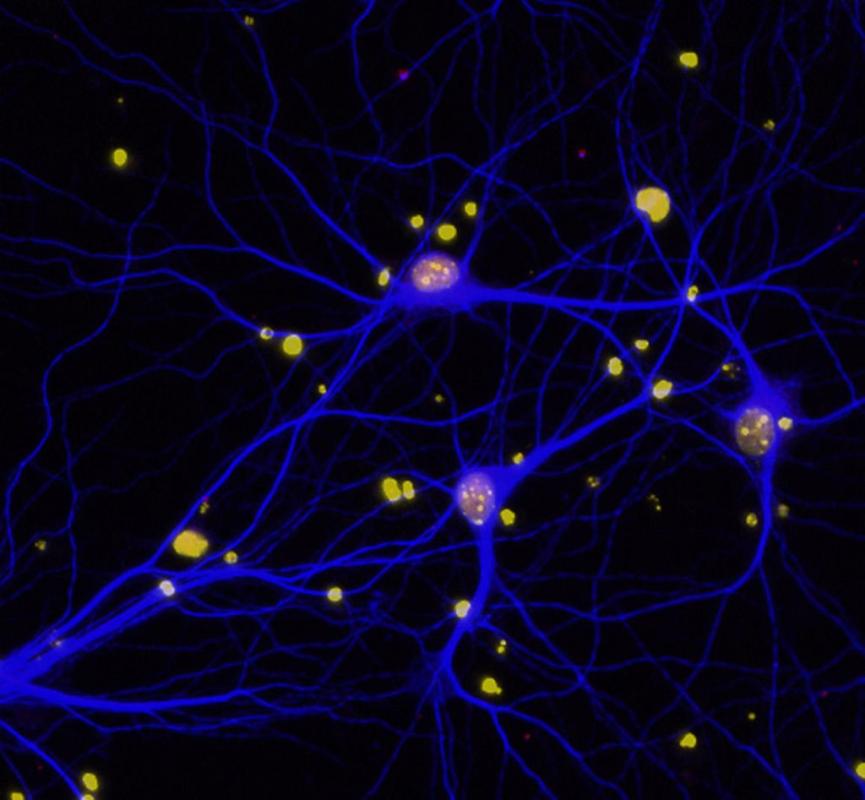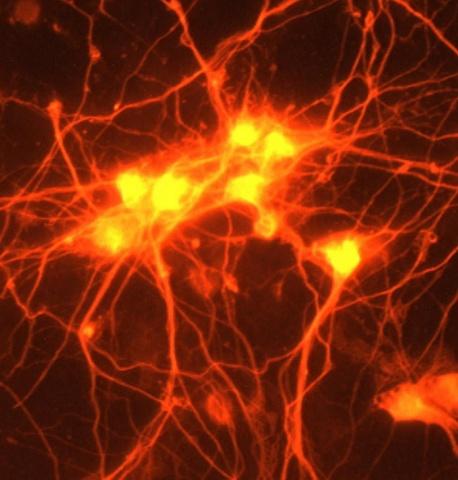Our Duke Parkinson's and Movement Disorders Newsletter provides free news, interviews, and resources for individuals with movement disorders and their care partners.
Sign up to receive the newsletter.
Calakos Reflects on Research and Career Path with JCI
The American Society for Clinical Investigation (ASCI) has selected Nicole Calakos, MD, PhD as the recipient of the 2023 ASCI/Stanley J. Korsmeyer Award. She is recognized for her contributions to the understanding of brain plasticity and for her discovery of a signaling defect shared by several causes of dystonia. Dr. Calakos is a Professor of Neurology, Neurobiology, and Cell Biology at Duke University Medical Center; the Lincoln Financial Group Distinguished Professor of Neurobiology; and a member of the US National Academy of Medicine.
Staff Spotlight: Oula Khoury, PhD
Managing research projects for one academic laboratory can be challenging on its own. Oula Khoury, PhD, the subject of our latest Spotlight interview, has to juggle projects for five at Duke (plus one more at Stanford) as part of an Aligning Science Across Parkinson’s (ASAP) initiative. Khoury talks to us about her work managing timelines, experiments, and budgets for these projects in an effort to learn more about neurons’ vulnerability to Parkinson’s.
Staff Spotlight: Katherine Henderson, MDiv
The consequences of Parkinson’s disease and other neurodegenerative movement disorders go beyond their physical symptoms. They also force people with these conditions, as well as their loved ones, to confront grief, anger, and a host of end-of-life concerns. Katherine Henderson, MDiv, the subject of this week’s Spotlight interview, recently joined our interdisciplinary Benchmark Clinic as a non-denominational chaplain to help Parkinson’s patients confront and work through these concerns.
Fellow Spotlight: Rabia Ghazi, MBBS
Rabia Ghazi, MBBS, first became interested in neurology when she saw how neurologists used examination findings, neuroanatomy, and clinical history to diagnose and treat complex neurological conditions. She decided to pursue movement disorders when she saw the difference deep brain stimulation (DBS) and other therapies were able to make in people’s lives. Now, she’s finishing the second of a two-year fellowship in the field, and preparing for a career that involves both clinical care and research.
Duke Neurology 2022: A Year in Review (Part 2 of 2)
The Duke Neurology Department continued to build on its success in the second half of 2022. The final six months of 2022 saw Duke University Hospital receive national rankings for neurology and neurosurgery, our first endowed professorship dedicated to help treat and understand amyotrophic lateral sclerosis (ALS), and recognition as the country’s second national center of excellence for dystonia among other achievements.
Duke Neurology 2022: A Year in Review (Part 1 of 2)
The Duke Neurology Department continued to grow and advance its missions of patient care, research, and training the next generation of neurology providers in 2022. Highlights from the first half of our calendar year include national and Duke-wide awards recognizing our faculty’s contributions to the field of diversity, inclusion, and neurology as a whole. The same period also saw the growth of the new Duke/UNC Alzheimer’s Disease Research Center and three of our neurologists don helmets and get in their racing care.
Staff Spotlight: Michelle Moshkowitz
Michelle Moshkowitz’s history with Duke Neurology stretches back to 2008, when she started working as a registered medical assistant at our Morreene Road Clinic. After a stint in one of Duke’s Integrative Medicine Clinics, she has returned to Morreene Road, where she’s helping to schedule, organize, and maintain our clinical research for Huntington’s disease.
Staff Spotlight: Skylar Groves
For as long as she can remember, Skylar Groves has been interested in the brain and in the nature of consciousness. Groves is currently putting those interests to use in the lab of Noreen Bukhari-Parlakturk, MD, PhD, where she is helping to examine how deep brain stimulation can help people with focal hand dystonia. In our latest Spotlight interview, Groves talks about her hopes of becoming a future neuroscientist and how her backgrounds in both chemistry and dance influence her current work.
Duke Neurology Research Round Up, December 2022
Members of the Duke Neurology Department advanced the fields of clinical and translational neuroscience this November, contributing to 16 new peer-reviewed studies.
Duke Neurology Research Round Up, November 2022
This October, members of the Duke Neurology Department advanced the fields of clinical and translational neuroscience, contributing to 14 new peer-reviewed studies and one book chapter. Highlights from our recent research include validation of new automated measures that evaluate handwriting for dystonia symptoms, a discussion of the effects of blood pressure on head and facial pain, and a discussion of presentations of a neuroimmune disorder known as MOGAD.
